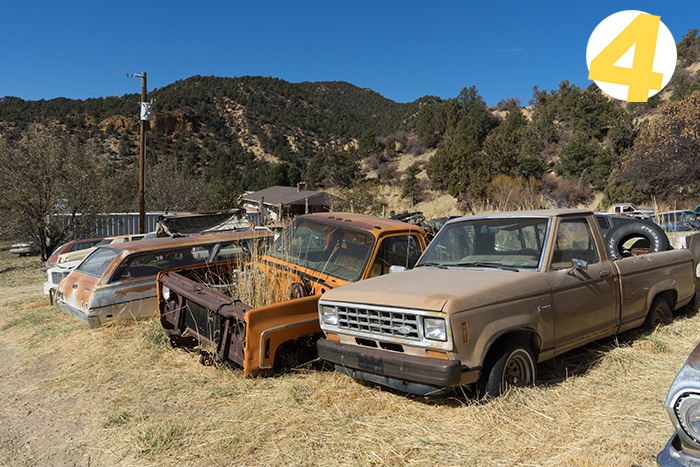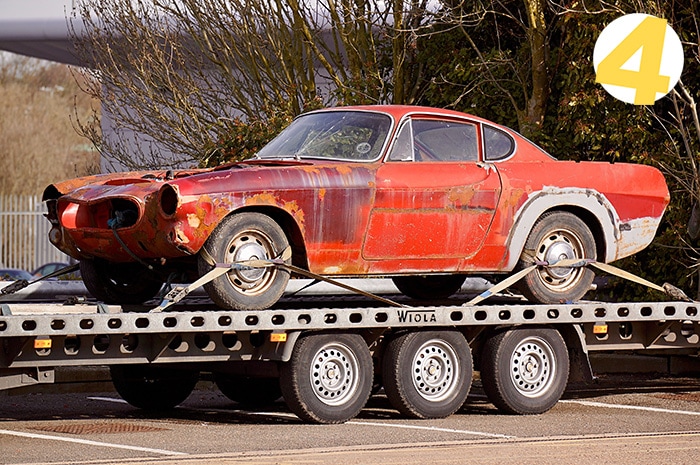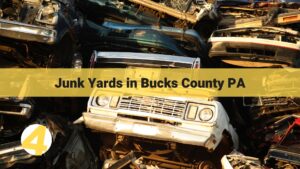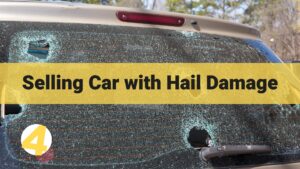Yes, to junk a car you will need a title. but…
In the vast world of automobiles, from the sleek sports cars to the old clunkers in our backyards, every vehicle has a story. But when it’s time to bid farewell to that old car, there’s one crucial document that stands between you and the junkyard: the title.
This piece of paper, often overlooked during the car’s prime days, becomes the focal point when deciding its final resting place.
The title not only serves as a testament to the car’s history but also as a legal document that verifies ownership. As you navigate the process of junking your car, understanding the significance of the title is paramount. This article delves deep into the world of car titles, exploring their importance, the risks of proceeding without one, and the steps to take if your title is nowhere to be found.
Whether you’re a first-time car owner or a seasoned driver, this guide will equip you with the knowledge to navigate the junking process seamlessly.
Understanding Car Titles
What is a Car Title?
A car title is a legal document issued by the state government that serves as proof of vehicle ownership. Unlike vehicle registration or proof of insurance, which have distinct purposes, the car title strictly demonstrates who owns the car.
This document contains vital information about the vehicle and its owner, such as the Vehicle Identification Number (VIN), car make, model, year, owner’s name and address, issue date, and the odometer reading at the time of issue. Whether you purchase a car outright, settle an auto loan, or receive a vehicle as a gift, obtaining the title is a crucial step. It’s essential to store this document securely, separate from the vehicle, to prevent potential loss or theft.
Different Types of Car Titles
Car titles can be categorized based on the vehicle’s history, condition, and any incidents it might have encountered. Here are the most common types:
Clean: This title is issued to vehicles that have not been in any significant accidents and are free from major damages. It indicates that the vehicle has been inspected and found to be in good condition.
Clear: A clear title is given to vehicles that have undergone repairs and have subsequently passed the necessary inspections.
Rebuilt: If a vehicle was previously severely damaged but has since been repaired or rebuilt, it receives a rebuilt title. This indicates that while the car was once considered a total loss, it has been restored to a functional state.
Salvage: Vehicles that have sustained significant damage, to the extent that repairs might cost more than the vehicle’s value, are branded with a salvage title. These cars require extensive rebuilding to be roadworthy again.
Junk: This title is reserved for vehicles deemed beyond repair. Such cars are often sold for parts or scrap metal.
Flood Damaged: Cars that have been damaged due to flooding receive this title. Water damage can have long-term effects on a vehicle, affecting its electrical systems, lubricants, and mechanical components.
It’s worth noting that the specific criteria and definitions for these titles can vary by state. Additionally, there are other less common titles like “lemon” for vehicles with hazardous components, “odometer rollback” for vehicles with illegally altered mileage, and “dismantled” for cars that are completely totaled.
Understanding the type of title a vehicle holds is crucial, especially when buying or selling. It provides insight into the car’s history, potential issues, and its overall value.
Why Titles Matter in Junking Cars
Legal implications and ownership verification
A vehicle title is a crucial piece of documentation issued by the governing state that indicates the ownership status of a car. It provides essential details such as the VIN, the odometer reading on the issue date, and the owner’s full name and address. In cases where the vehicle is financed, the lienholder’s name will also be present on the title. This document serves as a legal proof of ownership and is vital for various transactions, including selling or junking the car.
The role of titles in determining car value
The presence or absence of a title can significantly influence the value of a car when junking. A clear title can often boost the value of the junk car, as it simplifies the transaction process. On the other hand, missing titles can be a red flag for potential buyers, requiring additional due diligence and potentially reducing the car’s value.

Scenarios Without a Title
Lost or damaged titles
Titles can be misplaced, damaged, or become illegible over time. Such situations can complicate the process of selling or junking a car, as the title serves as the primary proof of ownership.
Stolen titles and potential risks
A stolen title can pose significant risks. It can be misused for fraudulent activities, leading to potential legal complications for the original owner.
Title jumping and its implications
Title jumping refers to the act of selling a vehicle without transferring the title into the seller’s name. This practice is illegal and can lead to various complications, including potential legal issues and challenges in establishing clear ownership.
Can You Junk a Car Without a Title?
General guidelines and exceptions
While it’s not impossible to junk a car without a title, the process becomes more challenging. Rules and regulations vary from state to state. In some states, vehicles older than a certain age may have less stringent title requirements.
Required documentation: Registration, driver’s license, and bill of sale
In the absence of a title, other documents can serve as proof of ownership. These include the vehicle registration, a valid driver’s license, and a bill of sale. These documents can facilitate the process of junking a car without a title.

Risks and Challenges of Selling Without a Title
Legal complications and reduced offers
Selling a car without a title can lead to legal complications. Buyers or junkyards may offer reduced prices for cars without titles due to the additional paperwork and potential risks involved.
Potential scams and buyer skepticism
Cars without titles can be viewed with skepticism. There’s a risk of scams, where unscrupulous individuals might claim a car is theirs when it isn’t. Buyers are often wary of such situations, leading to challenges in finalizing a sale.
State-Specific Guidelines 🌐
States allowing junking without titles: Florida, Oklahoma, Wisconsin, California, among others, permit the junking of cars even without titles. However, the specifics can vary, with some states having more relaxed regulations than others.
State-specific forms and requirements:
- Tennessee: The state mandates the use of the RV-F1324001 form for cars being junked without a title.
- Oklahoma: A notarized copy of the vehicle information request form is essential. Additionally, the car’s battery must be removed, and the gas tank drained and punctured before junking.
- California: The REG 227 form is crucial, facilitating the transfer of the vehicle title to another person’s name.
Preparing to Sell a Junk Car Without a Title 📋
Gathering proof of ownership: Essential documents include the bill of sale and vehicle registration.
Researching junk car buyers: It’s vital to identify buyers in your vicinity who are open to purchasing cars without titles.
Evaluating the worth of your junk car: Understand the potential value of your car, considering factors like its condition, age, and the demand in the junk market.

The Process of Junking a Car Without a Title 🔄
Providing proof of ownership: Present your driver’s license, vehicle registration, and bill of sale to establish ownership.
Dealing with liens and financed cars: If the car is under a lien or is financed, it’s essential to settle those obligations before junking.
Importance of reporting the sale to the state: Reporting ensures you’re not held liable for any future incidents involving the car.
The Value Proposition: How Much Can You Get? 💰
Factors affecting value: The car’s condition, demand in the market, and the presence (or absence) of a title can influence its value.
Impact of replacement titles: Acquiring a replacement title can potentially enhance the car’s value during a sale.
Exploring Alternatives: Donation vs. Junking 🔄
Benefits of donating a car: Donating can offer tax deductions and the satisfaction of contributing to a charitable cause.
Financial implications: While junking can provide immediate cash, donating might offer longer-term financial benefits through tax deductions.
Steps to Acquire a Replacement Title 📜
State-specific requirements and fees: Each state has its procedures, forms, and fees for acquiring a replacement title.
Importance of storing the title safely: Once acquired, ensure the title is stored securely to prevent loss or damage.
Transferring Ownership: How to Sign Over a Car Title ✍️
The process: When selling or junking, the title must be signed over to the new owner to transfer ownership legally.
Differences between titles: Understand the distinctions between clean titles and salvage titles, as they affect the car’s value and saleability.
Cash4Cars’ Stance on Cars Without Titles 🚗
Cash4Cars Philadelphia emphasizes the importance of titles but offers solutions for cars without them – Opt for a trusted service that provides fair prices, transparent processes, and excellent customer support.
FAQs
- What if my title was signed over to me but isn’t in my name?
- A: If the title was signed over to you but hasn’t been transferred to your name, it’s essential to complete the title transfer process with your state’s DMV. Until the title is officially in your name, you may face challenges when trying to sell or junk the car. Ensure you have the bill of sale and any other relevant documentation to facilitate the transfer.
- Can I junk a car that’s not in my name?
- Junking a car that’s not in your name can be complicated. Most junkyards and buyers require proof of ownership, which is typically the title. If you don’t have the title or if the title isn’t in your name, you’ll need additional documentation, like a bill of sale or power of attorney, to prove you have the right to junk the car. Always check with local regulations and the specific requirements of the buyer.
- How do I protect myself from scams when selling without a title?
- Protecting yourself from scams is crucial, especially when selling without a title. Here are some steps to consider:
- Research the Buyer: Ensure the junkyard or buyer is reputable. Look for reviews or testimonials.
- Meet in Safe Locations: If selling to an individual, meet in well-lit, public places.
- Document Everything: Have a bill of sale and keep copies of all transactions.
- Avoid Upfront Payments: Be wary of buyers asking for fees or payments upfront.
- Stay Informed: Familiarize yourself with common scams in the car selling industry to recognize red flags.
- Protecting yourself from scams is crucial, especially when selling without a title. Here are some steps to consider:









